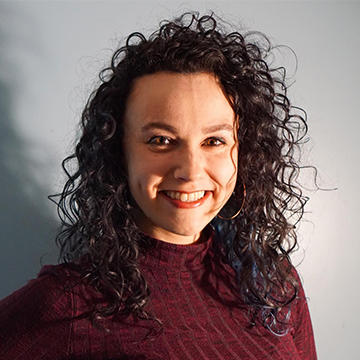
Take advantage of a broad and diverse selection of courses in which the primary emphasis is on the scientific understanding of behavior. You'll engage in high impact learning practices such as internships, study abroad, specialized classes, and research.
At Juniata, more than 60 percent of psychology students conduct research. Our students present empirical findings at national and regional conferences (e.g., American Psychological Association, Eastern Psychological Association, NorthEastern Evolutionary Psychology Society) and, in collaboration with their faculty mentors, publish in scholarly journals.
You'll engage in high impact learning practices such as internships, study abroad, specialized classes, and research.

Take advantage of a broad and diverse selection of courses in which the primary emphasis is on the scientific understanding of behavior. You'll engage in high impact learning practices such as internships, study abroad, specialized classes, and research.
At Juniata, more than 60 percent of psychology students conduct research. Our students present empirical findings at national and regional conferences (e.g., American Psychological Association, Eastern Psychological Association, NorthEastern Evolutionary Psychology Society) and, in collaboration with their faculty mentors, publish in scholarly journals.
You'll engage in high impact learning practices such as internships, study abroad, specialized classes, and research.

Take advantage of a broad and diverse selection of courses in which the primary emphasis is on the scientific understanding of behavior. You'll engage in high impact learning practices such as internships, study abroad, specialized classes, and research.
At Juniata, more than 60 percent of psychology students conduct research. Our students present empirical findings at national and regional conferences (e.g., American Psychological Association, Eastern Psychological Association, NorthEastern Evolutionary Psychology Society) and, in collaboration with their faculty mentors, publish in scholarly journals.
You'll engage in high impact learning practices such as internships, study abroad, specialized classes, and research.
Why Study Psychology at Juniata College?
"The psychology department is dedicated to helping you have the experiences you need to launch you into your future," said Dr. Kathryn Westcott, professor of psychology and chair of Juniata's psychology department. "We really get to know you across your four years here." Learn More →
Why Study Psychology at Juniata College?
"The psychology department is dedicated to helping you have the experiences you need to launch you into your future," said Dr. Kathryn Westcott, professor of psychology and chair of Juniata's psychology department. "We really get to know you across your four years here." Learn More →
Study Abroad
Through study abroad, psychology students have the opportunity to be more directly exposed to locations, issues, and cultures that are relevant to their current and future professional interests. In addition, students may have the opportunity to take courses that are not offered in our department: e.g., Industrial-Organizational Psychology, Psychological Testing, or Sleep & Dreams. Destinations include: England, Northern Ireland, France, Australia, Germany, Spain, Ecuador, Greece, The Gambia, Czech Republic, New Zealand, and Scotland.
Learn More → skip to content
skip to content








